Turning your house into an Airbnb can feel super nerve-wracking and filled with uncertainty: How do you protect your property and personal belongings? What’s worth investing in and what’s not? What exactly do you need to do to turn your home into a rental your guests rave about?
This step-by-step guide will walk you through exactly how to convert your house into an Airbnb. By the end of this post, you’ll have the confidence and know-how you need to successfully turn your home into a 5-star Airbnb!
This post may contain affiliate links. If you click a link and make a purchase, I may earn a commission at no additional cost to you. As an Amazon Associate, I earn from qualifying purchases. I’m not affiliated with Airbnb in any way (other than being an Airbnb host, of course). Read my full disclosure policy here.
Contents
How to Turn Your House Into An Airbnb: Step-by-Step Guide
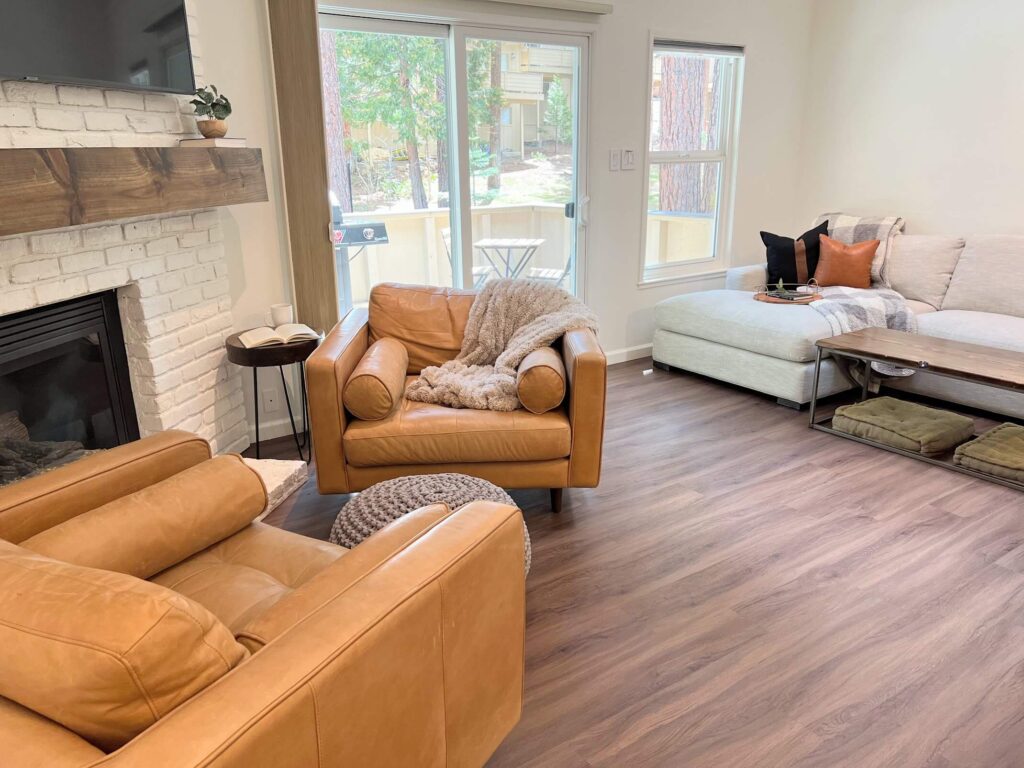
1. Research your property
At this point, you know you want to Airbnb your home, but will it be as profitable as you hope? It may surprise you how much time, energy, and money is required to start and run an Airbnb–even if you’re short-term renting your own house.
AirDNA’s free revenue forecast tool can help you estimate how much revenue your specific property can earn. While this tool is designed to forecast the revenue of an entire home that’s available to rent the entire year, it can give you a really good sense for your home’s revenue potential whether you plan to dedicate it solely to renting, rent it out only when you’re not using it, or only rent out a particular area of your home.
After you have a rough sense of your potential revenue, make sure to use this profitability calculator to estimate how profitable your property can be before you invest any of your hard-earned cash.
Recommended: Buy Airbnb Property With Confidence With This FREE Airbnb Calculator
2. Check local requirements
At the same time, be sure to understand any requirements for short-term rentals in your area. Some municipalities and homeowner’s associations don’t allow short-term rentals at all. Others require certain permitting that can be cumbersome, expensive, and hard to get approved.
Usually, you can find short-term rental restrictions and permitting requirements online, but it doesn’t hurt to call your municipality and talk to someone directly, too, because what’s online is not always up-to-date.
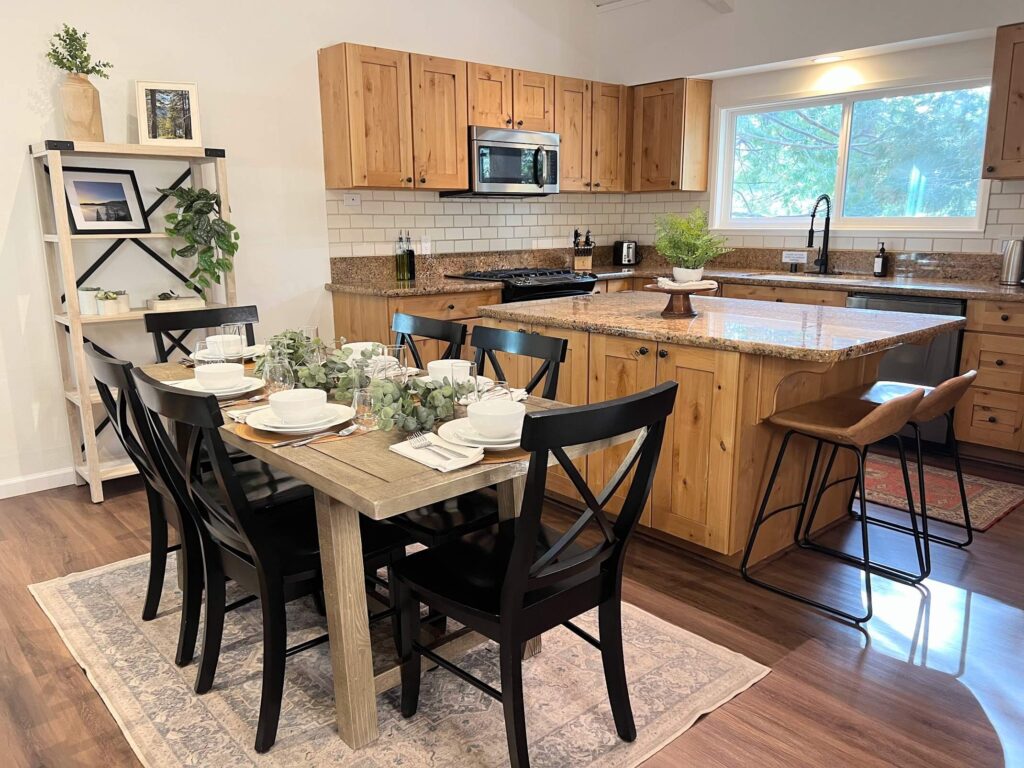
3. Set up your property
One of the best things you can do when converting your house into an Airbnb is to get rid of all personal items and clutter. When guests are renting out your Airbnb, it’s their home–not yours!
Personal items like clothing and family photos as well as any and all clutter should be completely removed. If you need to keep any items for your personal use at the home, lock them up so they’re out of sight and inaccessible to guests (but make sure guests have enough storage for their things, too).
Additionally, it’s crucial that you don’t leave anything out that you wouldn’t want to “go missing” or get damaged. HDMI cables, phone chargers, keyboards, Bluetooth speakers…any sort of small electronics commonly “go missing” from Airbnbs. If you want/need to leave a small electronic out for your guests–for example, a TV remote–expect to need to replace it from time to time.
The good news is, your home is already very well set up because you live there! So unlike most hosts, you won’t have to invest as much in making sure your guests have all the furniture and supplies they need.
But, you still need to make sure you’re not missing any crucial items. Make sure you’re providing everything your guests need and expect with my FREE furniture and supplies checklist (100+ essentials!):
Recommended: The Best Room-By-Room Airbnb Checklist: 100+ Essential Items
4. Get renter’s insurance
Your existing homeowner’s insurance may or may not include coverage specific to renting out your property, so be sure to check your policy to find out. If you’re not covered, consider adding this coverage or buying a separate policy specific to short-term rentals.
Be sure to also take a look at Airbnb’s AirCover policy, which covers hosts with $1MM in liability insurance and $3MM in damage protection.
5. Find a local cleaning company
The one thing you absolutely can’t skip when setting up your Airbnb is creating a plan for cleaning your property between guests. If you’ll be nearby and have the time, you could choose to clean the property yourself. However, I recommend hiring a cleaning company.
Why?
Because cleaning is super easy to outsource. There are tons of professional cleaners that will get the job done well, probably even faster and better than you would (that’s definitely true for me!). Plus, if you clean your property yourself, what happens if you get sick? Or need to go out of town? Having a plan in place is crucial.
6. Take listing photos
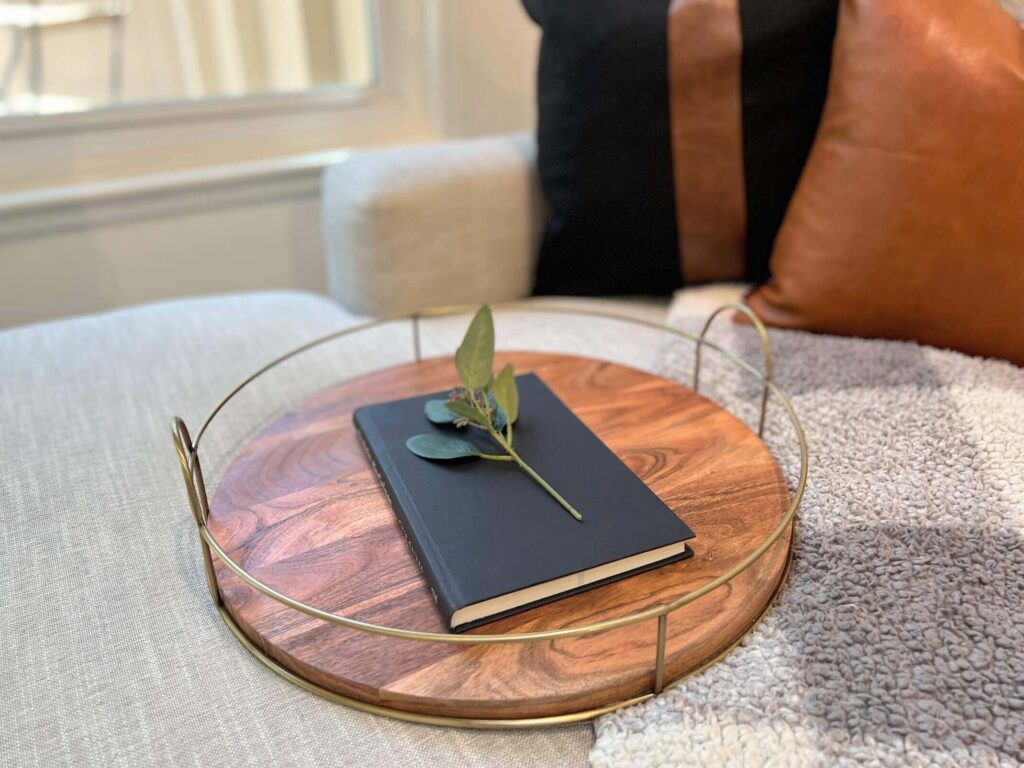
Once all of your furniture is in place and you’ve found a local cleaning company, you’re ready to take photos of your property! Do one last check to make sure all personal items and clutter are nowhere in sight. Again, this is not your home in your listing photos–it’s your guests’ home away from home!
When it comes to taking listing photos, you have two options: do-it-yourself or hire a professional photographer.
Option #1: Do-It-Yourself
To go the DIY route, you’ve got to have some experience taking photos. You don’t need to be a pro, but you do need to be comfortable taking bright, inviting photos and have the right equipment to make that happen. Here’s how to know if taking your own listing photos is right for you.
Recommended: How To Know If You Should Take Your Own Airbnb Listing Photos
Option #2: Hire A Professional
If hiring a professional is right for you, talk to your photographer about your expectations so you’re both on the same page. To make your photos as warm and inviting as possible, consider hiring a lifestyle or wedding photographer over a real estate photographer. Real estate photography tends to be too cold and sterile for an Airbnb listing.
Recommended: 10 Lesser-Known Ways To Perfect Your Airbnb Listing Photos
Pro tip: This is just one of the 15+ sections of your listing that need to be optimized to maximize your profitability. Learn how you can optimize your listing to start earning more from your Airbnb today!
7. Create your listing
Phew! Now that you’ve got all that out of the way, you’re finally ready to start drafting your actual listing. This is by far the quickest step so I recommend waiting until last.
There are four main components to your listing: listing photos, title, description, and house rules.
#1: Listing Photos
If you followed all my photo recommendations above, you should be in great shape! Just upload your final photos to your listing and add a descriptive caption to each.
#2: Listing Title
When deciding on your listing title, first do some competitive research to understand what other listings in your area are highlighting. When crafting your own title, state what makes it special compared to other listings.
#3: Listing Description
When creating your listing description, make sure to incorporate your key attributes in a way that ties your whole property together and invites guests in for a great vacation. Ideally, they’ll picture themselves enjoying your property as they read.
Pro Tip: If you want to get as many bookings as possible, each of these sections (and many more!) need to convince potential guests that your Airbnb is perfect for them. Get my step-by-step guide that shows you how to do just that here.
Takeaway
Whew, we just covered a lot!
You now know exactly how to convert your home into a 5-star Airbnb!
Setting up your first Airbnb is a huge accomplishment! After all your hard work, don’t forget to take some time to celebrate and relax. But know that the work doesn’t end there.
After you start hosting there’s a lot of work that goes into managing your Airbnb.
Found this post helpful? Pin it for later:
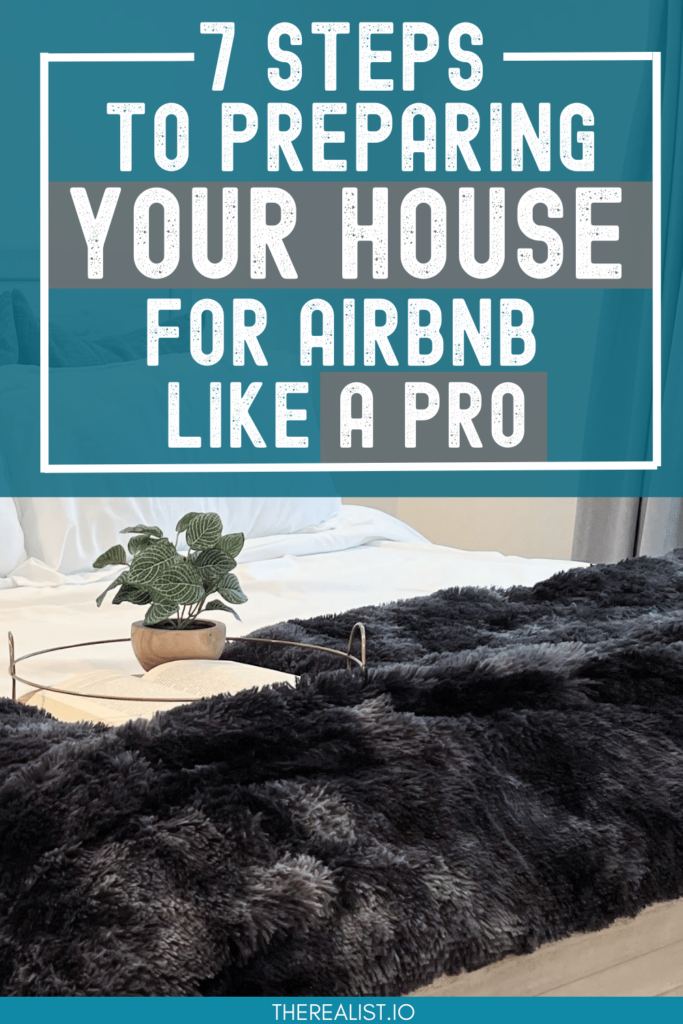
Have questions about how to turn your house into an Airbnb? Let me know in the comments.
Disclaimer: All content on this website is for informational purposes only. You are taking all provided information at your own risk. We are not financial, real estate, legal, investment or other professionals. Nothing on this website should be construed as professional advice. We will not be liable for any loss or damage of any nature. For more information, read our disclaimer.
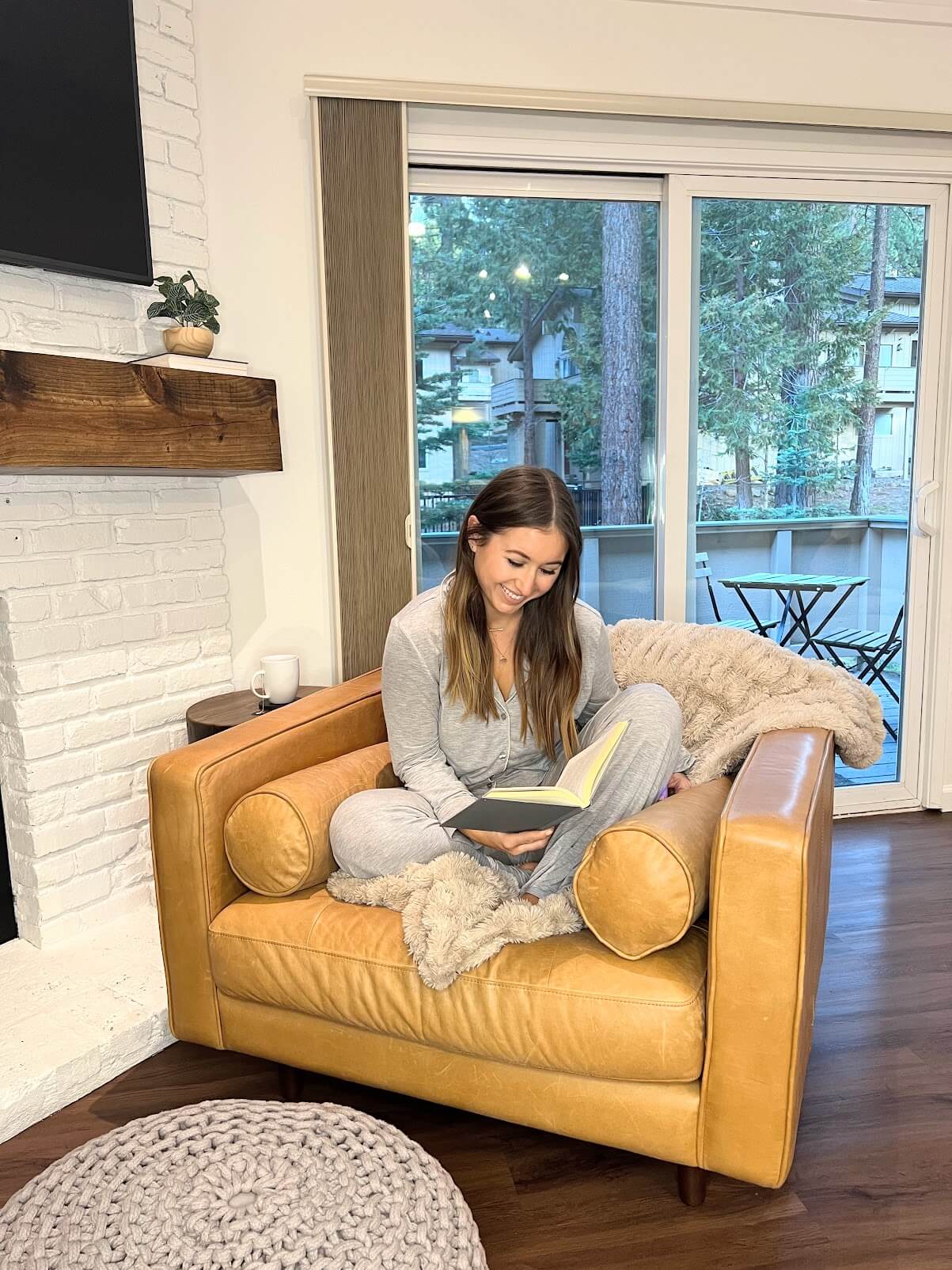
+ show Comments
- Hide Comments
add a comment